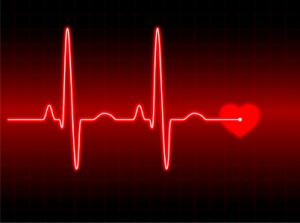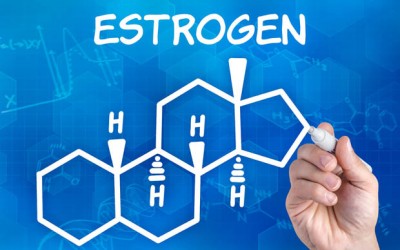Articles
The Top Testosterone Myths
Myth #1: Testosterone is an illegal drug.
Testosterone is a naturally occurring hormone that flows through the veins of every healthy male or female, even making its presence known as early as the womb. In males it’s responsible for development of genitalia and secondary sexual characteristics that occur during puberty (like a deepening voice, facial hair, broader shoulders, etc.). It’s also responsible for muscle size and tone, erections and sexual function, mental health, bone health, cardiovascular health, and overall health in general.
While it doesn’t play quite so prominent a role in female development, it also plays a role in their lean muscle mass and strength, along with their libido, energy, bone strength, and health in general.
Having healthful levels is crucial to the health of both men and women throughout their lives, and it’s only illegal if it isn’t prescribed by a doctor.
Of course, certain sports organizations have rules regarding using testosterone and other drugs to enhance performance. Case in point, famed cyclist Lance Armstrong was stripped of many of his awards because he used amounts of testosterone that were above and beyond the amount normally found in healthy adult males.
read moreTop 8 TRT Mistakes
Here are the most common mistakes doctors or patients make when starting testosterone replacement therapy (TRT):
1. Using a Treatment Option That Doesn’t Fit Your Lifestyle or Personality
Many TRT doctors just prescribe whatever protocol they’re familiar or comfortable with, be it injections, gels, or even pellets. Unfortunately, all protocols don’t mesh with all lifestyles or personalities.
For one thing, if you’re needle-phobic, injectable testosterone sure isn’t going to work.
Maybe you’re fine with needles, but what if your doc doesn’t want to teach you how to self inject? That means you’ll have to drive to his office once or twice a week for an injection. Does that fit in with your schedule?
Or perhaps your doc prescribes gels or creams instead of injectable T. Do you have enough time every day to apply the gel after showering and let it dry? Are you confident that, while waiting for the gel to dry, you won’t come into contact with your wife or children and inadvertently boost their testosterone levels?
Find a doctor who’s familiar with all TRT protocols and is conscientious enough to question you about your lifestyle and personality. Otherwise, you might settle on a TRT protocol that you end up discontinuing because either it didn’t work well enough, or it didn’t fit your lifestyle.
read moreStudy Shows Testosterone Good for the Heart
Next to regular exercise, eating a healthy diet, and maintaining a low-stress lifestyle, testosterone replacement therapy might be the best thing you can do for your heart.
Sure, that’s a bold claim, but it’s hard to refute the ever-increasing amount of evidence filtering out of the scientific research community. Consider the latest results of a multi-year study that found low testosterone men to be 80% more likely to suffer an adverse cardiovascular event (stroke, heart attack, or death).
read moreDepression and Low Testosterone
Depression is the deep, deep hole to which no light penetrates. It differentiates from sadness or a “decrease in mood” only by a matter of degrees. That degree of differentiation, however, matters little to people suffering from either condition. They only know that they feel dead inside and life, despite all its joys, holds little allure for them.
Telltale symptoms of depression include loss of interest in pleasure or normal activities, sleep disturbances, trouble concentrating, erectile dysfunction, angry outbursts, unexplained physical problems like back pain, anxiety, agitation, or restlessness, or plain old feelings of sadness.
The possible causes are many. It could be genetic. Or it could be from a perfectly understandable cause like the loss of a loved one, physical abuse, financial problems, or, as is the case with many affluent men and women, the realization that money didn’t guarantee any measure of happiness. There are the possible medical causes, too, like substance abuse and major illness. And then there’s the recent discovery that low or borderline-low testosterone levels also contribute to depression.
read moreTestosterone Levels Don’t Matter
Just about every man over the age of 40 knows his cholesterol levels. It’s almost as certain as a professional baseball player knowing his batting average. Nowadays, though, there’s another number that’s starting to attain similar importance, and that’s a man’s testosterone levels.
Given all the publicity testosterone has gotten in the last few years, more and more men are asking their doctor to test their levels to make sure they’re somewhere in the healthy or “normal” testosterone zone.
However, Optimal Health Medical Group (OHMG) knows that a “normal” reading means almost nothing.
read moreDiabetes and Testosterone Replacement Therapy
It seems like diabetes is everywhere. About 29 million Americans have it, and there are probably at least 8 million more who haven’t been diagnosed and are unaware of their condition. Furthermore, roughly one of out three adults has pre-diabetes and 9 out of 10 of them don’t know it, either. It’s an endocrinological mess.
Now it’s long been known that testosterone plays a role in type 2 diabetes (the type that’s largely preventable), but the discovery that the relationship is a two-way street is more recent. Yes, people with diabetes often have low testosterone levels, but it’s also true that having low testosterone can promote conditions that can lead to diabetes, too.
More troubling, though, is recent research that shows low testosterone levels put men with type 2 diabetes at a significantly higher risk of death, which might lead you to wonder whether testosterone replacement therapy can reverse the risk of death in diabetics with low testosterone.
The research says yes.
read moreWhat To Expect From Testosterone Replacement
You just received your first dose of testosterone.
You involuntarily hold your breath in anticipation as you wait for the chemical cavalry to come and rescue your waning energy, buttress your failing libido, and transform your body into something worthy of an underwear model.
Too bad it doesn’t exactly work that way. Testosterone can be an amazingly transformative drug in a variety of ways and while the transformations are quick, they’re not generally something you’re going to experience in an hour, a day, or even a week.
Some, like sexual effects, happen relatively quickly, gradually ramping up over the weeks. Others, like changes to muscle, bone, and waist size happen more gradually, starting a few months after therapy begins and finally leveling off after two or three years.
We know this from experience and through the studies that have been conducted to gauge how fast testosterone replacement therapy works. Unfortunately, most of these tests have been conducted only on men, but most doctors and scientists, including those at Optimal Health Medical Group, feel that the general results (except gender specific categories like erection and ejaculation quality and frequency) apply to women, too, even though the exact time frames may differ slightly.
Let’s take a look at some of the effects of testosterone replacement therapy and how long it takes for them to kick in.
read moreLow Testosterone and “Old Man” Voice
You really can’t tell when someone’s on testosterone replacement therapy. They just look and sound like regular, healthy people. Granted, they’re generally more robust, leaner, and younger looking than the majority, but you might chalk that up to good genetics and clean living.
However, you can almost always tell when someone isn’t on testosterone therapy.
He or she might lack muscle tone. She might be carrying a little extra body fat, and his eyes might not sparkle quite as much as they used do. He may walk differently, taking short unsteady steps instead of long, confident strides. There’s often an overall lack of energy and, well, a lack of presence.
What’s more, older people who aren’t receiving testosterone replacement therapy usually sound different. Their voice is definitely weaker and maybe even a little harsh or discordant. When they speak, it sounds almost like the hinges on a creaky coffin in one of those old vampire movies. It’s just the classic old person voice.
This change in pitch and vocal quality is called presbyphonia and a lot of it has to do with declining levels of testosterone.
read more13 Dietary Rules to Follow While on Testosterone Replacement Therapy
Let’s clear something up right away. Optimal Health Medical Group’s (OHMG) healthy testosterone replacement diet recommendations are things every man and woman should be doing anyhow, regardless of whether or not he or she’s receiving testosterone replacement treatment (TRT).
However, it’s a safe bet the things we’re about to recommend will, when combined with TRT, help you grow more muscle, lose more fat, look younger, feel better, and function better, much more quickly than TRT alone.
read moreThe Truth About Testosterone & Heart Disease
The FDA is a little worried about testosterone.
In fact, they want the label on vials of testosterone to carry a warning that suggests that it may increase the risk of heart attack. This is despite their published belief that there’s only a “weak signal of cardiovascular risk” associated with the use of testosterone.
But you know who isn’t worried about testosterone at all? The Journal of the American Heart Association (AHA).
read moreWhy is Anti-Estrogen Therapy Important?
Men have testosterone and women have estrogen, and never the twain shall meet, except in the occasional female shot putter from some former Soviet bloc country.
That’s the way most people think of the relationship between testosterone and estrogen, but the truth is a lot more complicated. Women need a certain amount of testosterone for proper sexual functioning and health. Conversely, men need a certain amount of estrogen for the same reasons…
read moreGHRP and GHRH Peptides — An Attractive Alternative to Growth Hormone
Growth Hormone, or GH, is a hormone secreted by the pituitary gland of both men and women. It stimulates cellular growth and regeneration and it’s essential to a healthy metabolism, an optimal ratio of lean muscle to body fat, bone density, psychological wellbeing, heart health, and even skin thickness.
Without adequate levels, things start going south, literally and figuratively. Energy levels go down. Skin — along with other things — starts to droop. Muscle says goodbye. Belly fat increases while energy, stamina, and plain old vitality dissipate.
Unfortunately, without intervention, low levels of growth hormone are an unavoidable fact of life as GH levels decrease by about 50% every seven years after the age of 18-25.
GH levels can be brought up to youthful levels through injections of recombinant growth hormone but injections are problematic in several ways. For one, they’re very expensive, averaging about $1,000 a month.
Secondly, dosing is often based on the best guess of the doctor, and dosages that are too high can lead to reduced efficacy in the long run, in addition to possibly causing some metabolic disorders.
There’s also the problem of “feedback mechanisms.” Normally, the body controls GH levels. If it’s too high, the body stops producing it as a safeguard, but that all goes out the window when you’re receiving injections.
Lastly, Federal regulations restrict GH use to patients with AIDS, short bowel syndrome, or a GH deficiency, and qualifying for the latter is pursuant to restrictive guidelines.
Luckily, men and women don’t need to use actual GH for rejuvenation. Instead, there are amazing drugs called Growth Hormone Releasing Hormones (GHRH) and Growth Hormone Releasing Peptides (GHRP) that prompt the body into making its own growth hormone, essentially restoring GH to youthful levels.
The effects of these peptides are significant and long lasting. Belly fat starts to shrink. Skin tightens up and wrinkles become less noticeable. Hair regains its luster, and energy and vitality return to more youthful levels.
read moreMetformin – The World’s First True Anti-Aging Drug
Next to aspirin, metformin, originally known as glucophage (“sugar eater”), is one of the oldest drugs in use. It was invented in 1959 and used freely in other countries, but the ever-cautious FDA didn’t approve it for use in the U.S. until 1995.
The drug is currently used by type II diabetics the world over to help them handle dietary sugar or, more broadly, carbohydrates. However, when people who don’t have diabetes take metformin, it generally leads to fat loss because it also allows the non-diabetic person to handle carbs better.
read moreWhy Testosterone Replacement Therapy?
It sneaks up on you with a cruel consistency. The years pass by until what was normal for you slowly transitions into a new normal that isn’t really normal at all, but a pale shadow of what it once was.
You may have a vague impression of things being different, that you have a few more aches and pains than you used to, but other than that you really can’t remember exactly when things started to head south, literally and figuratively.
read moreTake Control. Get In Touch.
Look good, feel good, and play harder. Send us an inquiry and we will get back to you for a consultation.














